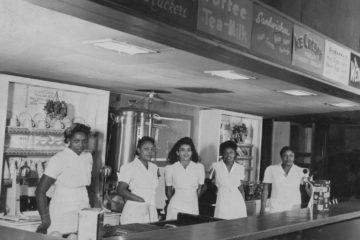Michelle Alexander in The New York Times:
 Once upon a time, I thought that it was perfectly appropriate for restaurant workers to earn less than minimum wage. Tipping, in my view, was a means for customers to show gratitude and to reward a job well done. If I wanted to earn more as a restaurant worker, then I needed to hustle more, put more effort into my demeanor, and be a bit more charming.
Once upon a time, I thought that it was perfectly appropriate for restaurant workers to earn less than minimum wage. Tipping, in my view, was a means for customers to show gratitude and to reward a job well done. If I wanted to earn more as a restaurant worker, then I needed to hustle more, put more effort into my demeanor, and be a bit more charming.
…The first week on the job, one of my white co-workers, a middle-aged woman from rural Oregon, pulled me aside after she watched a group of rowdy white men, who had been rude and condescending to me throughout their meal, walk out the door without leaving a tip. “From now on, dear,” she said, “I’ll take the rednecks. Just pass ’em on to me.” This became a kind of joke between us — a wink and a nod before we switched tables — except it wasn’t funny. The risk that my race, not the quality of my work, would determine how much I was paid for my services was ever-present.
So was the risk that I would be punished for not flirting with the men I served. Men of all ages commented on my looks, asked me if I had a boyfriend, slipped me their phone numbers, and expected me to laugh along with their sexist jokes. I often played along, after learning from experience that the price of resistance would be the loss of tips that I had rightfully earned.
The truth was, though, that I was shielded from the biggest risk that tipped workers face: not being able to make ends meet.
More here. (Throughout February, at least one post will be dedicated to honoring Black History Month. The theme this year is: The Family)
